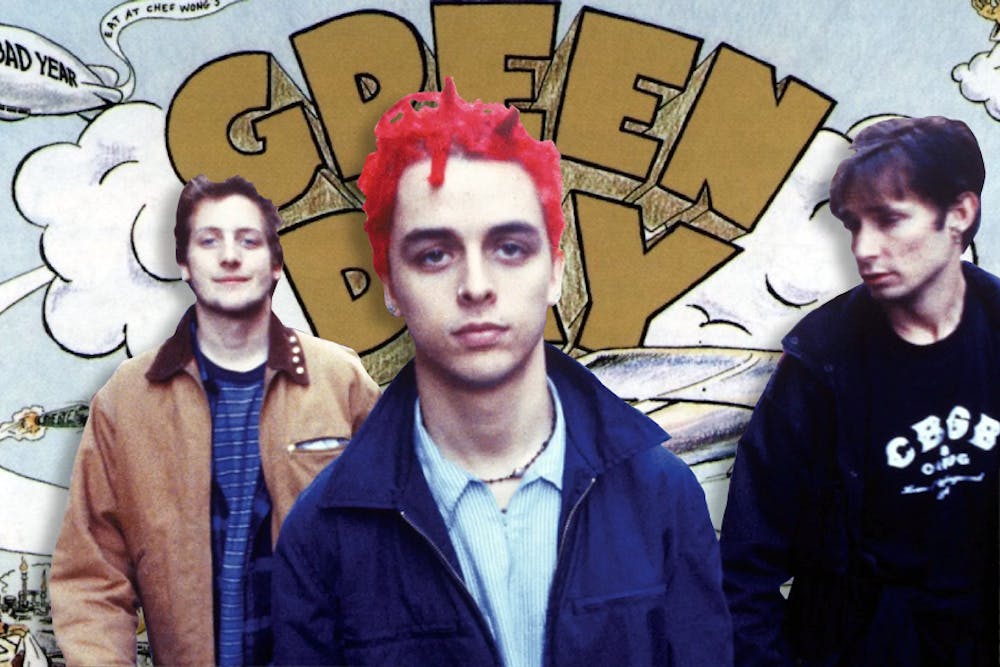The band Green Day has been around for a while and are still going strong. Even after multiple albums, a Broadway musical and a cameo in “The Simpsons Movie,” Green Day is still making new music. Their newest album “Saviors” was released Jan. 19, showing that the band is still capable of making hits. But this article isn’t about their newer work. Let’s talk about the album that got the world to notice Green Day: “Dookie.”
Released on Feb. 1, 1994, “Dookie” was Green Day’s third album and the first to receive widespread attention, despite marking a large departure for the group. Leaving the record label that produced the band’s first two albums, the production value of “Dookie” was considered to be more refined than Green Day’s earlier works. After bands such as Nirvana and Pearl Jam dominated the music scene for years, “Dookie” brought the music industry’s focus from the grungy sound of the early ‘90s into the underground punk scene.
Though not produced by an independent label, Green Day relied on their old work in the development of the album. I do not mean to say that the albums are similar tonally or in the messages within the songs, but the band did re-record a track from their second album “Kerplunk!” to be a new single for “Dookie.” This song was “Welcome to Paradise,” the third of four singles released in promotion of the album. The other three singles were “Longview,” “Basket Case” and “When I Come Around.” These four songs are most representative of what the album is: self-effacing and (sometimes) comedic. “Longview” and “Basket Case” particularly are album stand-outs, in both instrumental quality and lyrical subtlety. “When I Come Around” became a mainstream hit, topping multiple Billboard charts.
The album was a smash-success and brought the band into the mainstream. With Green Day’s popularity on the rise, the band was put under more scrutiny. The radio airtime along with the change of labels led many previous fans of Green Day to claim the band “sold out” for mainstream success. Additionally, many critics derided the “punk” label genre on the album, claiming it fell more under pop. Ever since, Green Day has been called pop-punk and has been credited with inspiring the popularity of the pop-punk genre in the early 2000s. Bands such as My Chemical Romance, Blink-182 and Paramore owe their popularity not only to Green Day, but the success of “Dookie.” However, the opportunities “Dookie” opened up for other bands can't be compared to what it let Green Day do next.
Green Day’s legacy cannot be pinned down to one album. “Nimrod” was a genre-bending, expectation-defying, contemplative work, and one of its singles “Good Riddance (Time of Your Life)” may be considered the band’s greatest success. A decade after “Dookie,” the band released an ambitious narrative rock-opera called “American Idiot,” a character-driven criticism of Bush-era politics. “American Idiot” would later be combined with their follow-up album “21st Century Breakdown” to form the basis for the “American Idiot” Broadway musical.
Later this year, Green Day will go on tour for their new album and the band has announced they will perform “Dookie” in its entirety at every show. As a record, “Dookie” is important in the history of pop-punk. Even 30 years after its release, it has stood the test of time. The album also opened the path for Green Day to become an icon that has remained relevant for three decades after their mainstream breakout.










